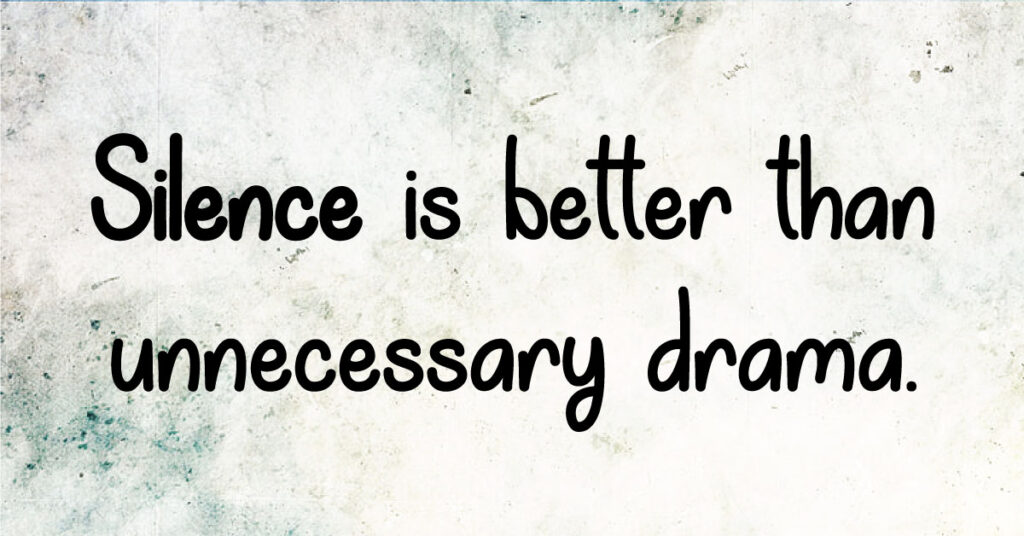The world can seem pretty crazy at times. It’s easy to get fixated on the negative, like conflict and upheaval, but it’s also important to remember that there are also a lot of good things happening as well. As we navigate this crazy world, it’s essential we don’t forget the importance of humility and being humble. Far too often, people seek validation through power or money and neglect their inner voices in the process. The truth of the matter is that true self-worth comes from within and having uncontrolled pride can blind us from seeing those dynamics in our lives. After all, no one is perfect, which means everyone – regardless of financial or social standing – is faced with personal challenges on a regular basis.
With humility and vulnerability, however, we can accept these challenges as part of life rather than getting caught up in how we appear before others. Humility helps us understand our weaknesses and imperfections so that we can learn from them instead of fighting against them. Approaching life with modesty enables us to accept help from others more readily and be open to new thoughts and experiences without letting pride cloud judgment. In a complicated world where perceptions play a huge role in opinions, remembering the value of humility can become your greatest asset.
5 Signs You’re a Humble Spirit
1. You don’t brag about the things you achieve or show off your successes
Humble person doesn’t need to showcase their successes or brag about the things they achieve. A truly humble individual understands that success isn’t defined by external measures and doesn’t feel the need to prove themselves to anyone. A humble person is content in knowing that they have done their best and that acknowledgment from others or recognition of accomplishment is secondary.
Instead of fixating on external badges of success, a humble person focuses on internal growth and development while still being open to feedback, learning new skills, and taking honest criticism without letting it hurt their self-worth. The sense of satisfaction and pride a humble person feels comes not from external validation, but rather from within knowing that they have put in the work and done their best regardless of how many people are paying attention.
2. You take responsibility for your mistakes and failures without expecting praise for admitting them
A humble person will take responsibility for their mistakes and failures without expecting praise or recognition for doing so. The ability to accept fault is a key sign of a humble individual, as they are willing to put their pride aside in order to learn from the situation, reflect on what went wrong, and move forward ready to do better next time.
Achieving this level of humility requires inner confidence and self-assurance that allows the person to recognize their failings without feeling negative about themselves or believing that admitting faults is a sign of weakness. Being able to acknowledge errors and flaws not only takes strength of character but also demonstrates an ability, to be honest with oneself and others – all signs of true humility.
3. You are honest about your capabilities and limitations, both to yourself and to others
Humble person is honest about their own capabilities and limitations, both to themselves and to others. Instead of exaggerating or overstating their abilities, they take an honest approach and set realistic expectations as well as boundaries that they feel comfortable with. This also applies to giving guidance and advice – a humble individual will tell you what they believe they can do, rather than promising more than they can deliver. Being honest about one’s own capabilities requires independence from the opinions and judgments of others, allowing one to be true to themselves even in the face of potential criticism or disapproval.
4. You’re open to learning from and taking advice from people who know more than you do
A humble person is open to learning from and taking advice from those who know more than they do. This can mean taking external help, asking for feedback, and seeking the guidance of experts in their field. It also involves actively listening to others, rather than simply awaiting their turn to speak, so that everyone involved can gain a better understanding of the situation.
Additionally, being humble entails being willing to accept criticism or constructive feedback without feeling insulted or belittled – challenging times will often present opportunities to learn and grow when approached with an open mind.
5. You understand that being humble doesn’t mean you have to be a pushover
Being humble doesn’t mean being a pushover or sacrificing your own needs and wishes to please others. Rather, it is about understanding that everyone deserves respect and kindness, no matter their background, experience, or position in life. Being humble involves recognizing one’s own values and strengths without feeling a need to be boastful or arrogant. It also entails being mindful of the importance of serving the greater good, even when that may come at the expense of personal interests. In the end, humility is an important part of living a full and meaningful life – both for oneself and those around one.
Final thought
Being humble is a quality that has the power to benefit both oneself and those around them. It involves having an open-minded attitude, listening to others, and respecting everyone’s unique perspectives and experiences. Humility also encourages self-reflection and growth, as it gives someone the opportunity to learn from their mistakes without feeling ashamed or embarrassed.
Additionally, it allows for meaningful relationships to be built with those around them as everyone can connect with each other on a human level. Above all else, being humble is a reminder that no one is infallible – it helps people keep their egos in check so that they can always strive to do better.







